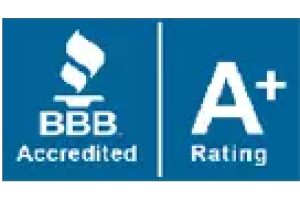Trial Lawyers
Copyright Infringement Litigation
If your work is tangible and has even a minimal degree of creativity it is deserves copyright protection. You may have common law copyright protections even if you haven’t registered with the Copyright Office. If your work is registered with the Copyright Office you will be able to enforce your rights in federal court.
What is a Copyright?
A copyright protects your creation from being copied and used by others. Copyright law stops others from copying your work and profiting from your efforts. Copyrights apply to visual, text, performance, and digital creations. Copyright law does not protect ideas, names, facts, or processes. A unique work automatically receives a copyright as soon as it physically exists. It isn’t mandatory to register with the U.S. Copyright Office but it is necessary for maximum protection and recourse against infringement.
Works That Can Be Copyrighted
- Illustrations
- Videos
- Books
- Manuals
- Designs
- Social Media Content
- Web Content
Copyright Infringement
Copyright infringement is when someone else uses your copyrighted materials without your permission. Copyright infringement takes several forms:
- Plagiarism: Passing off someone else’s written work as your own
- Counterfeiting: Creating a fake that resembles your work
- Piracy: Illegally downloading or copying copyrighted material
- Freebooting: Reposting copyrighted content without permission
Infringement hurts copyright owners and causes harm even if the infringing party does not profit. Loftus & Eisenberg are experienced in recovering significant amounts of money even where the infringing party has realized no profit.
Copyright Dispute and Litigation
Cases usually begin with a letter informing the offending party that a problem exists and invites negotiation. This is called a “cease-and-desist letter”. Frequently the alleged infringing party agrees to repair the issue after receiving the letter from a Chicago Copyright Attorney and this resolves the matter.
Call a Chicago Copyright Attorney now if you’ve received a cease-and-desist letter. Our attorneys are experienced in putting out fires before they spread!
If asking nicely fails a copyright owner can file suit in federal court for damages. In order to win you must prove that the copied work is “substantially similar” to yours and that you have suffered financial harm.
Defendants might claim “fair use” of the work. Copyright “fair use” laws allow others limited use of copyrighted materials without permission for news reporting, comment, and education. Defendants frequently argue that the work is open source or that it is not copyrightable in the first place.
Damages for Copyright Infringement
Actual Damages: 17 US Code § 504 (a)
Examples of actual losses from copyright infringement include:
- What a willing buyer reasonably would have been required to pay Plaintiff to obtain a license to use Plaintiff’s copyrighted work.
- The market value of the copies made by Defendant without the Plaintiff’s consent.
- What a willing buyer would shave been reasonably required to pay to a willing seller for Plaintiff’s work.
The jury is given a host of options to determine how the copyrighted work should be valued besides what the Defendants earned from its use.
Infringer’s Profits: 17 US Code § 504 (b)
In addition to actual damages, the copyright owner is entitled to any profits of Defendant attributable to the infringement.
In copyright infringement cases the plaintiff only must prove a causal relationship between the infringement and Defendant’s gross revenue. Unlike most claims, in a copyright infringement claim, Defendant has the burden of proving its expenses against this revenue and proving the percentage of the profit, if any, attributable to factors other than infringing the copyrighted works.
Statutory Damages: 17 US Code § 504 (c)
If it is too difficult to prove other forms of damages, the infringer may have to pay damages based on statute.
The statutory damages ranged from $750 to $30,000 for each copyrighted work that was infringed.
The challenge for Chicago copyright infringement lawyers is defining how many works were infringed. Many cases have turned on the number of infringements and number of works infringed.
Loftus & Eisenberg represents parties on both sides of copyright disputes. In 2021, we achieved an $850,000 for an author in a claim that other firms had passed on because it was too challenging. We have defended alleged infringers hailed into American Courts from China and India. Our attorneys have over fifty years’ experience litigating copyright disputes in federal courts nationwide.
















